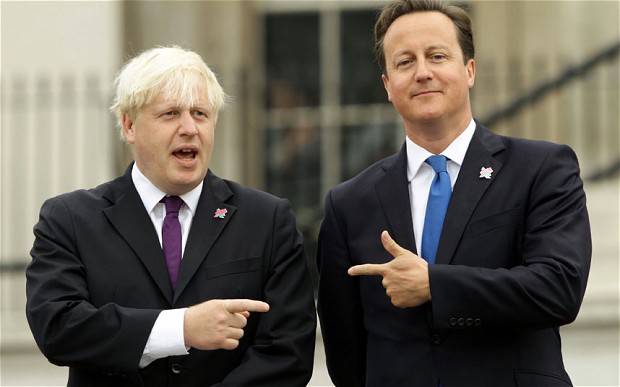It is good that Matthew Parris has taken on Boris. The Mayor has had too easy a press in many quarters. There is a good reason for this: he is one of us. There is a bit of the Bullingdon in Fleet Street: we are often too disinclined to attack our own.
Matthew Parris acknowledges this, and the vitriolic nature of his Times column on Saturday is an attempt to redress the balance. But for me, my objection is not that Matthew has gone over the top in his attack on Boris – it is that his line of attack is fundamentally wrong. The same is true of Nick Cohen’s blast yesterday on the same subject.
Let’s brush over Matthew’s complaint that a man who once supported Clause 28 has no right to boast on an LGBT ‘out and proud’ video. Boris has really just made the same journey as have many conservatives over the past three decades: from mild homophobia to one of complete ease on the subject. I don’t think Boris’s marital infidelities are much of an issue, either – on this Boris has been a beneficiary of greater social liberalism among conservatives. As, indeed, has David Cameron, who would have been in trouble had he found himself a decade earlier unable or unwilling to deny rumours that he had once taken class A drugs.
Matthew Parris’s more serious charge is that Boris is dishonest, a chancer who will do anything to anyone in order to obscure the policy vacuum at the heart of his political philosophy. Nick Cohen takes up the same line, turning attention to the Mayor’s flip-flops on the EU. How can anyone take Boris’s campaign for Brexit seriously, he asks, given that as late as February he was arguing that negotiations for Brexit would distract from the government’s other business?
Of course Boris can be a slimy opportunist — show me a top politician who isn’t. And yes, in many ways he is an under-achiever in the office of Mayor of London. But Boris’s position on the EU is not dishonest. He has flip-flopped on the EU because he is genuinely torn — and as such reflects the position of a huge proportion of the population. A man solely driven by desire to be PM would not have come out in favour of Brexit. Being on the losing side of the referendum — as is still more likely than not — will hardly boost his chances of becoming Tory leader. It would be the worst possible start to a leadership campaign.
To say Boris has no political ideas is wrong. He is at heart a libertarian who believes in small government and free trade — an anti Corn Law Tory. He has drifted from these beliefs in office, becoming more of a spender than he should be. He backed an extravagant Olympics when his head would have told him to oppose it. But his pragmatism in bending to these things is no greater than other democratic leaders — anyone who is elected has to follow the will of the people to some extent. The idea that an elected politician can ignore public opinion and blindly follow a path of personal principle is absurd. Boris could see the Olympics were popular, in spite of the extravagance, and so he fell behind the people who elected him.
On the EU, Boris’s principles are torn because while on one hand the EU has been a champion of free trade, it has also been an impediment to progress in some areas. It has protected agriculture to a bizarre degree, freezing out developing countries from our food markets. That is an issue which especially grates with Boris. The EU has also compromised its support for free markets where it conflicts with workers’ rights. On the one hand the EU has brought us a pan-European free market in labour, but on the other hand it has forced on member states a lot of employment law, making it harder for companies to hire and fire. That is what makes the decision on the EU referendum so very difficult for people who believe in free trade and liberal economics — the EU is good and bad and it is not easy to decide where the balance is.
That is why Boris has swung from one side to the other on the EU. It is contrary to the Parris charge — it is because he is more thoughtful on the issue than are most politicians. The Cameron approach to the referendum is far more dishonest – the Prime Minister gave every indication of wanting a serious negotiation with the EU and told us he would campaign to leave if he didn’t get a satisfactory deal. Yet even before he had got any kind of deal he was campaigning to stay in. Now he tries to tell us that leaving would be an utter disaster — raising the question why, if he thinks that, did he ever want to risk having a referendum at all?
There’s real dishonesty and a real policy vacuum for you. As it happens, I still have doubts that Boris will make it to Number 10. My bet is the ‘in’ campaign will win, Cameron will continue as PM, emboldened by his victory and Boris will reach his Parliamentary apogee as Secretary of State for Culture, Media and Sport. Cameron will seek the ultimate revenge, putting Boris’s younger brother Jo in a higher cabinet position.
But if Boris fails to make it to PM it would not be for lack of vision or honesty. On the contrary, on the EU referendum he has been one of the few to admit that it is not an easy decision.







Comments